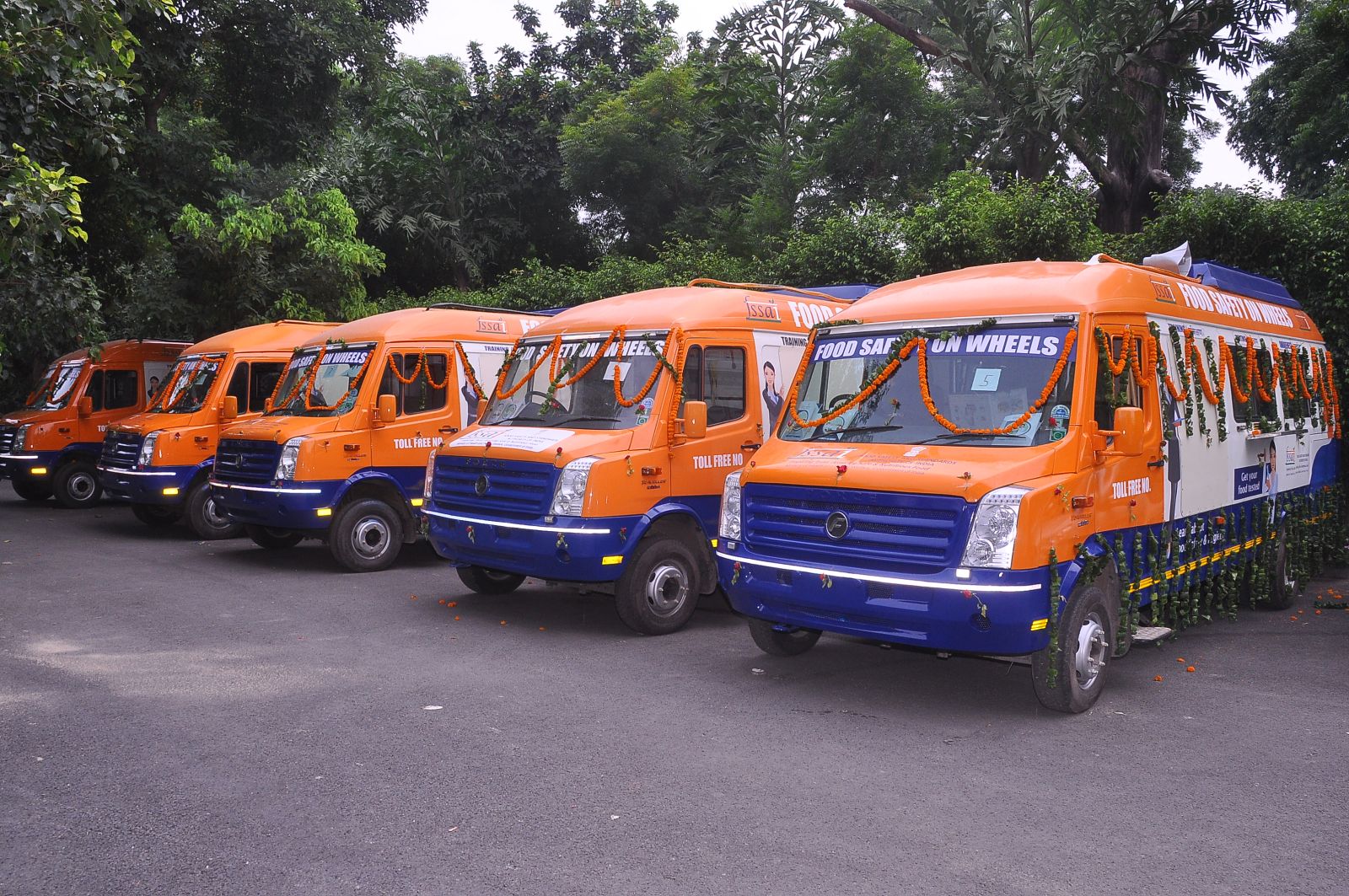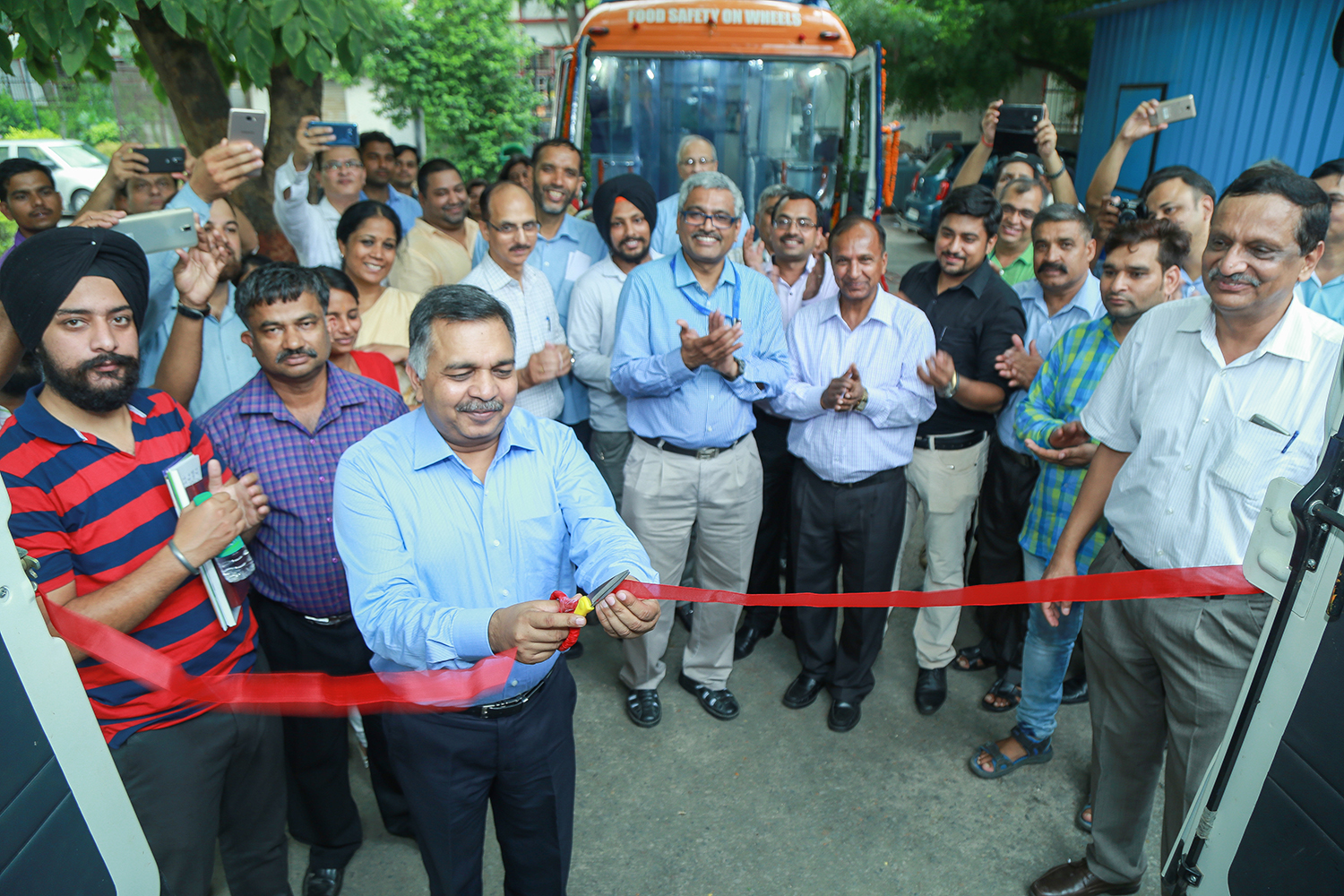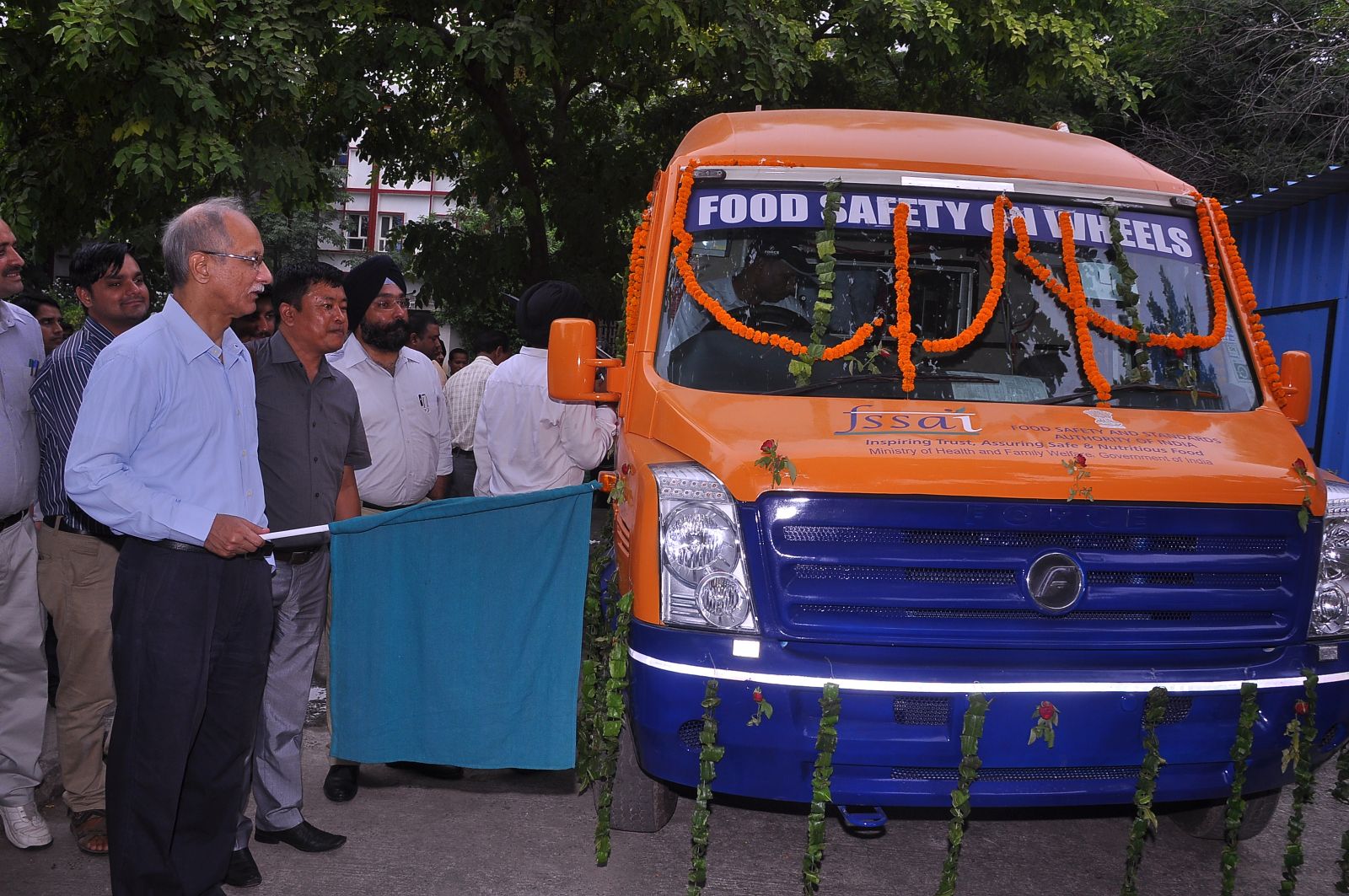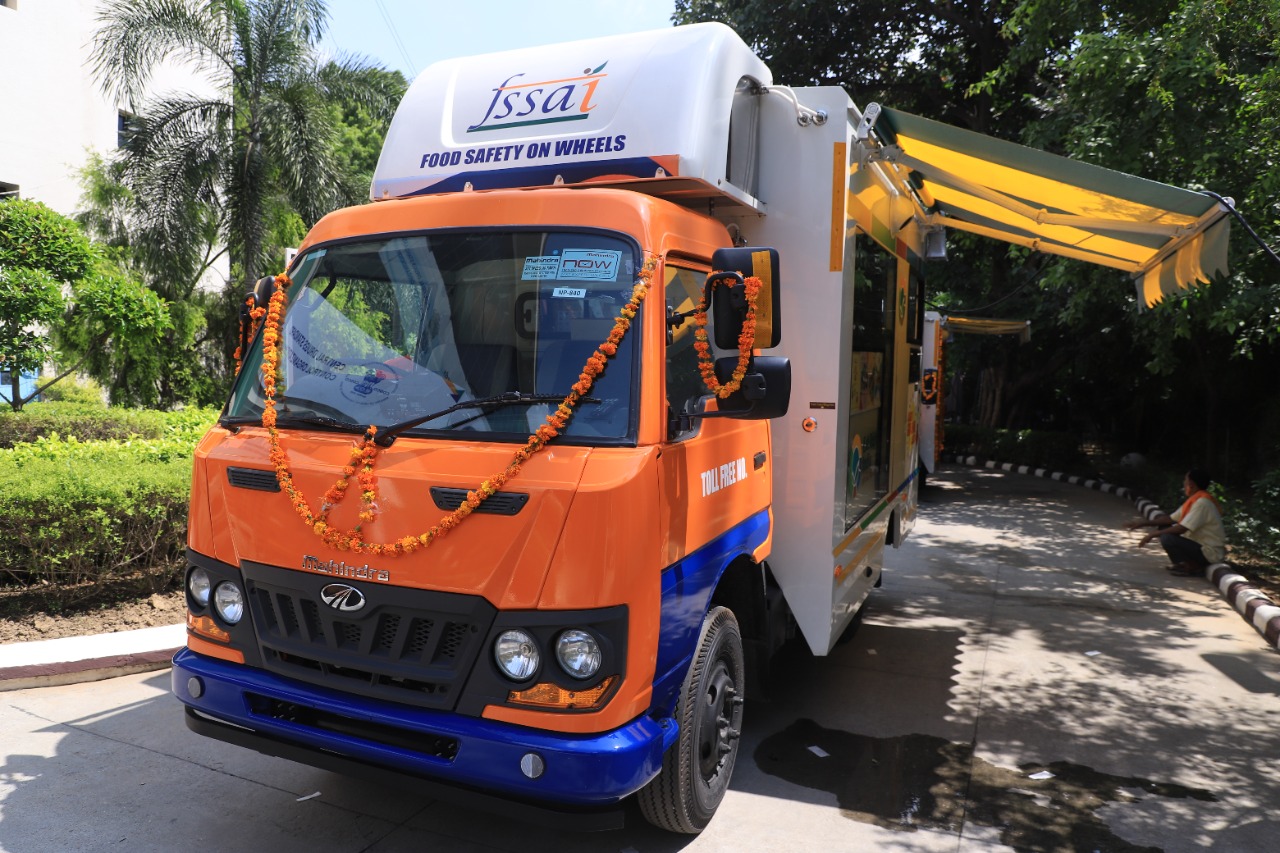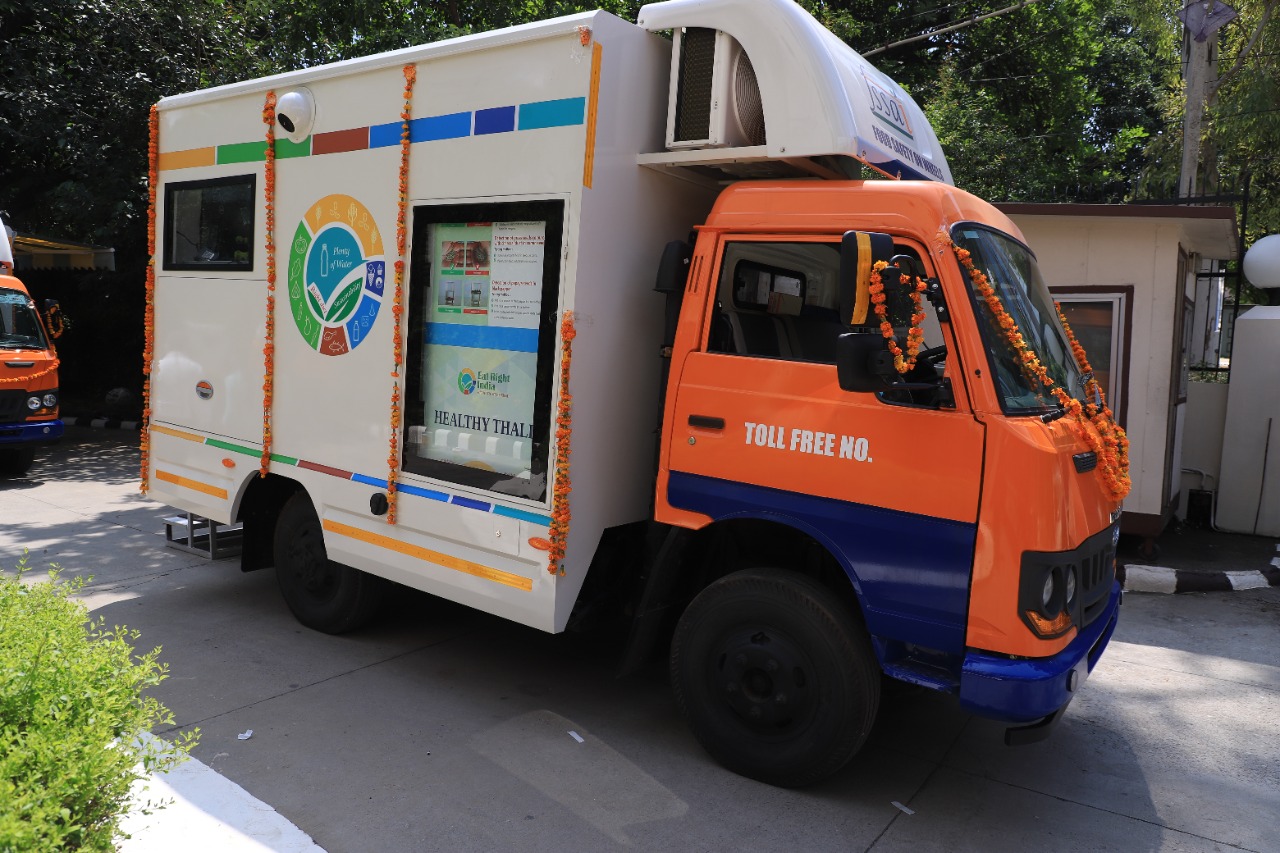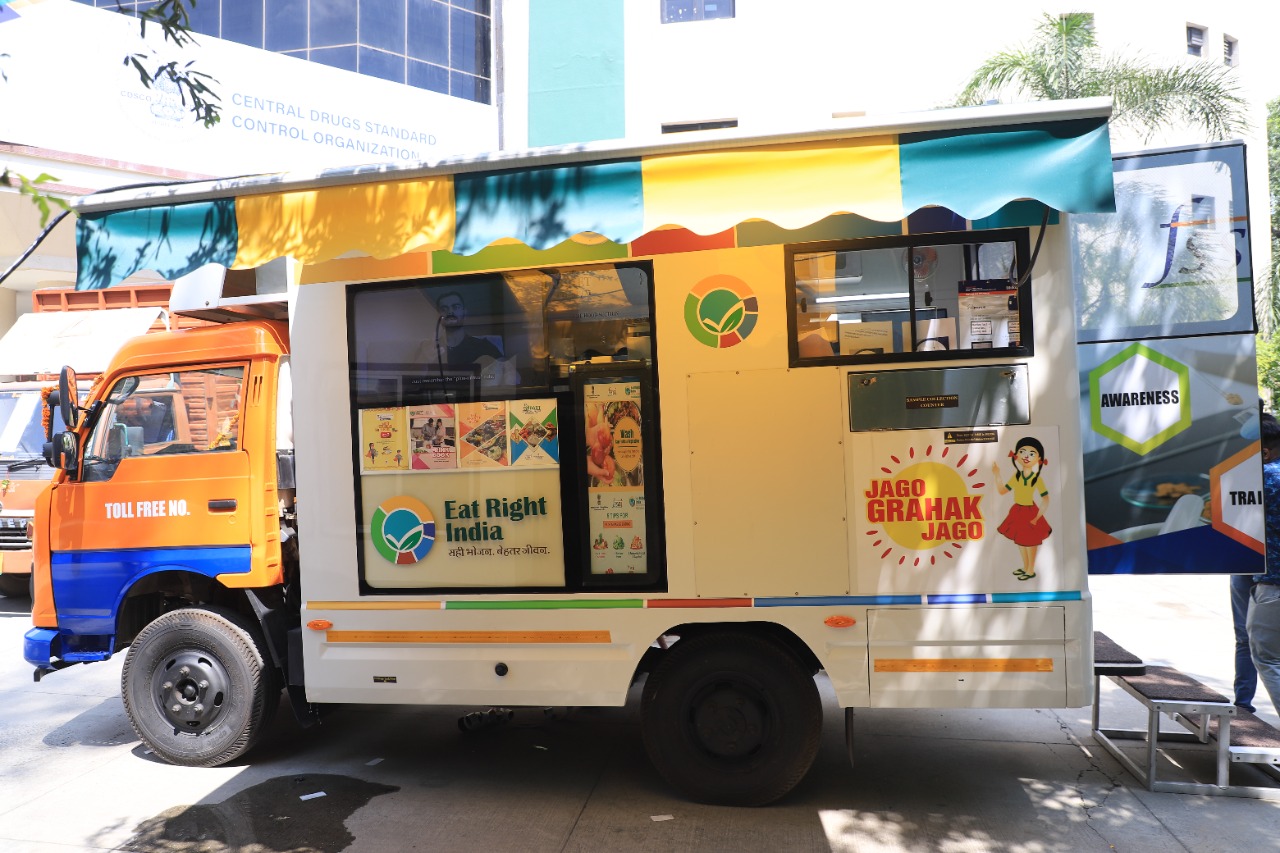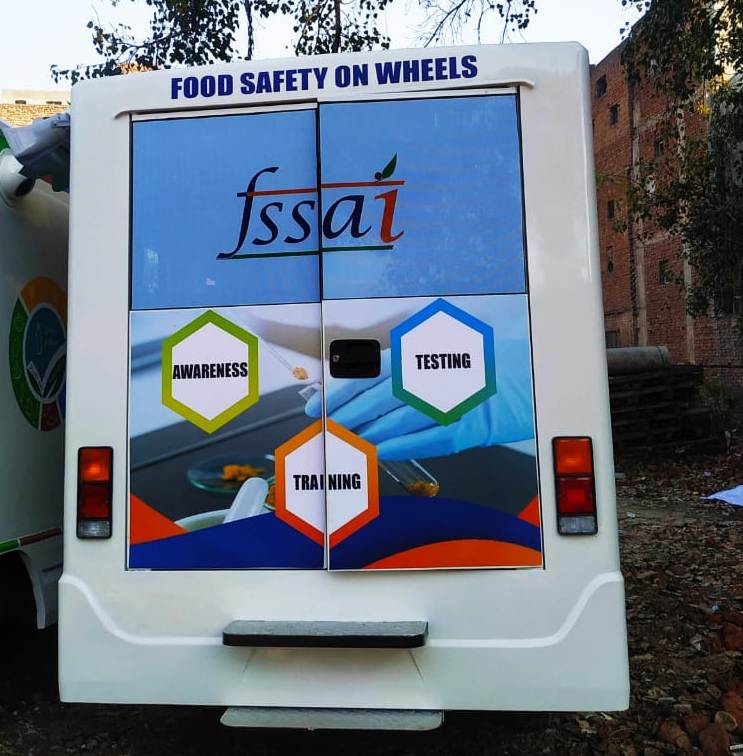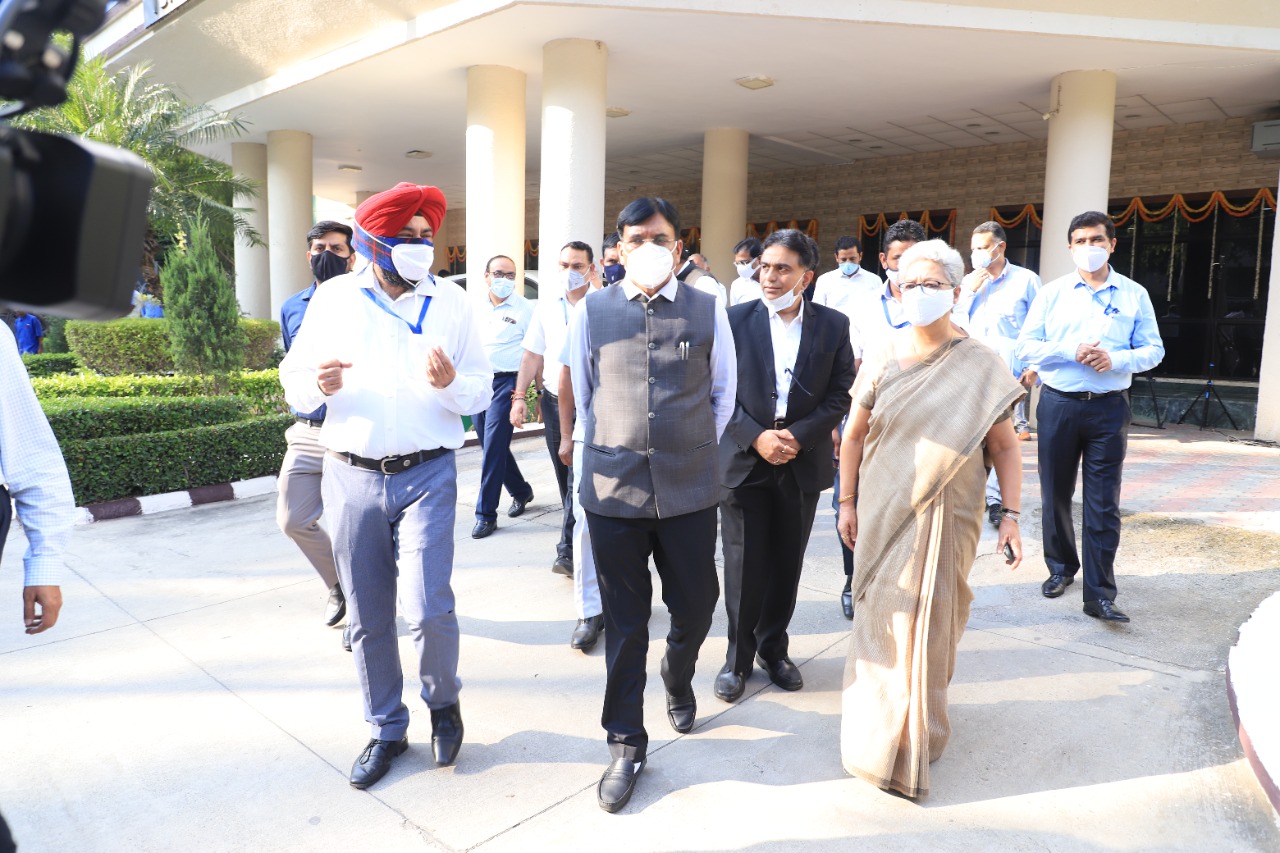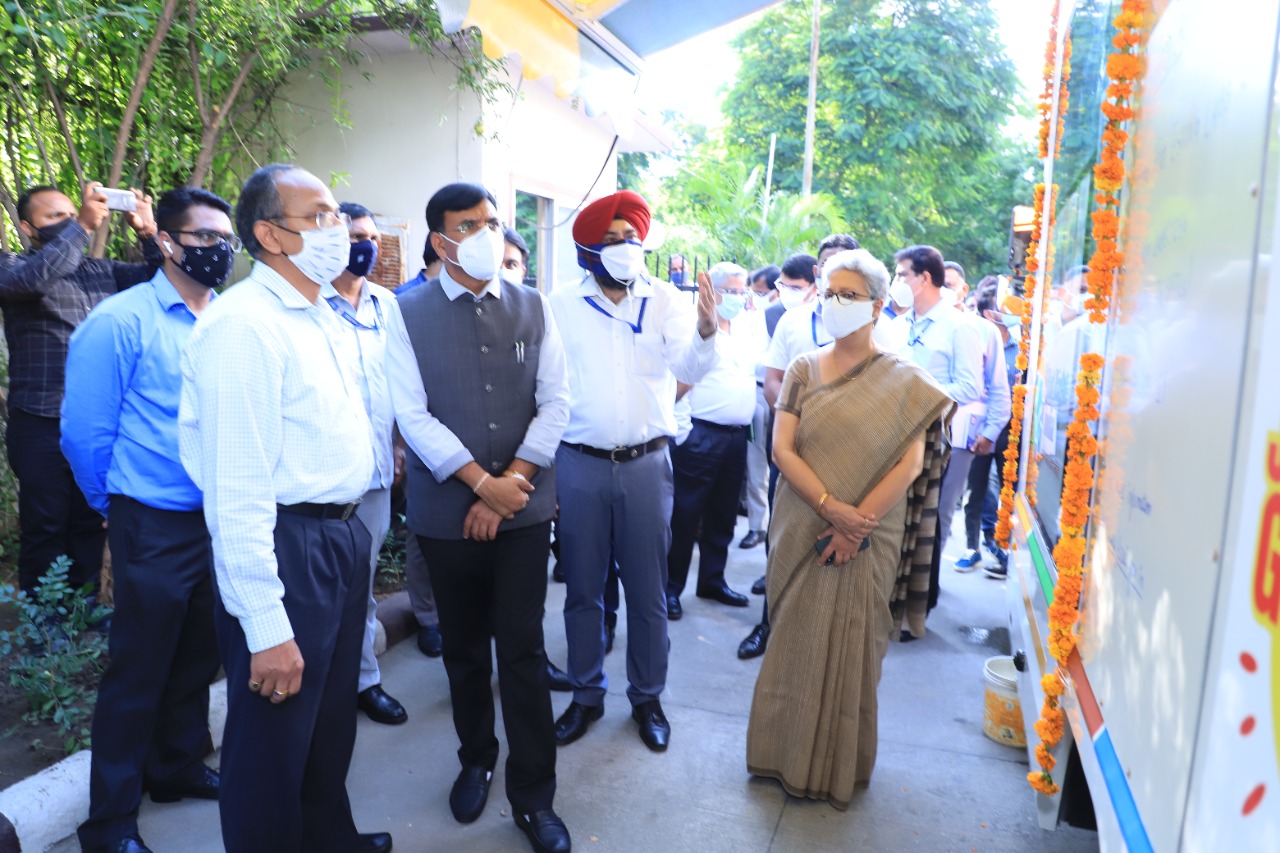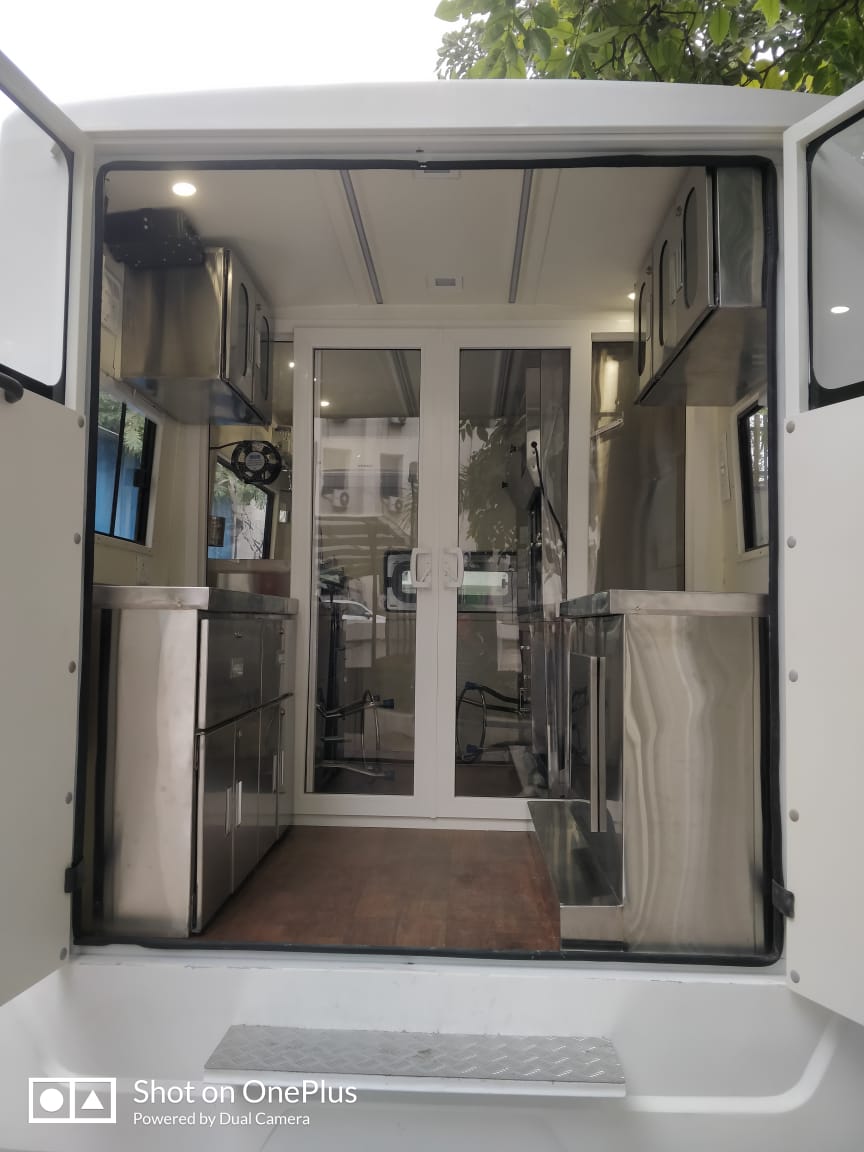Testing of food to instil confidence amongst consumers that food is safe to eat is important part of the food safety ecosystem. However, number and spread of food testing labs in the country is grossly inadequate. While, Food Safety and Standards Authority of India (FSSAI) is working towards having more food testing labs both in the public as well as private sector, it has also initiated a scheme to provide mobile units for food testing to reach out to consumers through as many touch points as possible. These mobile units are called “Food Safety on Wheels”.
Food Safety on Wheels
Modified Food Safety on Wheels
60 Food Safety on Wheels (FSWs) and 294 Modified Food Safety on Wheels have been provided to the States/UTs. This would not only address the issue of lack of food testing infrastructure in the remote areas but also cater to the basic analytical needs of consumers along with spreading awareness and imparting training to the general public and food business operators including street vendors on various aspects of food safety.
FSWs would be utilized for executing the functions of (i) surveillance and creating awareness regarding the food safety in remote areas in the State, large public congregations, schools and consumer organizations; (ii) transporting samples picked from remotes areas to the nearest food testing laboratory; thus as a cold chain logistics for regulatory/ surveillance sample (iii) As an offsite wing of Labs,(iv) Education of the consumers in various aspects of food safety laws and common hygiene practices (v) As a module for communicating IEC materials in vernacular languages, (vi) As a handy tool for training street food vendors, (vii) Providing information and support for licensing and registration (viii) Training and/or awareness programs for plantation workers about food safety, (ix) on the spot test facilities for qualitative adulteration of common food items like ghee, milk, khoya, sweets, edible oil, spices,water & other beverages non-permitted food colours in various foods like cereals, pulses, namkeens, prepared foods etc.
Each FSW can test about 80 parameters qualitatively across 7 different food categories. In addition, each FSW has a provision for performing simple microbiological tests if the states so desire. The FSW is provided at a cost of ~ 50 lakh INR each, including a recurring grant towards Petrol, Oil, Lubricants & consumables.
It is hoped that with passage of time, services provided through these mobile units, ‘Food Safety on Wheels’ would become popular amongst all stakeholders, namely, the citizens, the consumers, the food businesses and the field functionaries of the Food Safety Departments in the States. This would help to bring about a paradigm shift in food safety ecosystem in the country.
Visit The FSW Website 



